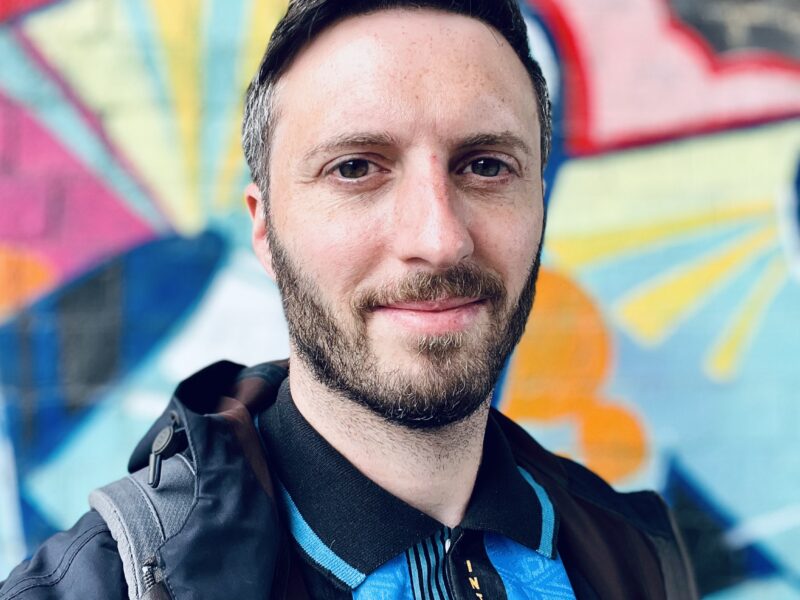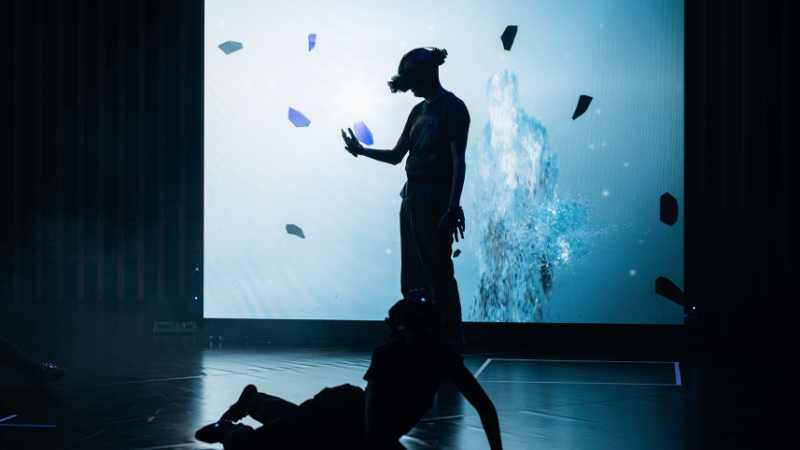AI and discovery
You may have noticed, but things are changing. And now it’s the turn of the trusty search engine to be disrupted. Conversational chatbots driven by artificial intelligence are providing new ways to filter and retrieve information. They are creating a new lens through which we view and experience the world.
While the underlying technology will touch many aspects of how the culture sector currently works, I want to focus on one area in particular. Discovery. It seems inevitable that AI will influence the way people find art, engage with culture, and participate in events, exhibitions, and activities. And this will no doubt have a knock on effect for marketing, communications, and events teams at venues, festivals, and cultural institutions up and down the country.
ChatGPT and event listings
To try to see where things are headed I fired up ChatGPT, the game-changing conversational AI chatbot from OpenAI. I wanted to see if it could open my eyes to new experiences so I asked it to provide me with an itinerary of arts and cultural events in my home town of Birmingham during this month. I knew it likely wasn’t up to the task, but I was sure the process would highlight some of the opportunities and challenges coming down the track.
Due to its own stated limitations, ChatGPT can’t currently give you live, up-to-date information. It lives in a time-limited bubble that only extends up to September 2021. This means, at the time of writing, it is pretty useless as a personalised aggregator of arts and cultural events listings.
So, without the aid of live data, ChatGPT instead responded to my prompt by inventing some quite plausible-sounding events that don’t actually exist or remixed events of the past.
Given this is a known limitation of the platform, there were no surprises there. However, it was interesting to see which venues it chose to include in its ‘hallucinated’ listings. There was a clear preference for bigger arts organisations and public events, even if most of it was made up.
If this was replicated in a later iteration of the platform that could aggregate live listings, it could have significant ramifications for smaller, fringe or community events.
Google Bard – any better?
I wanted to see if Chat GPT’s main competitor could do any better. So I opened up Bard – Google’s own recently-launched AI assistant. The main difference here is that Bard can trawl the internet to retrieve its information so can, in theory, provide live, up-to-date information.
I gave the same prompt to Bard – “Please give me an itinerary to attend two arts and culture events per week in Birmingham, UK in July 2023”. It immediately dispensed much more useful-looking information.
But, on closer inspection, all was not as it seemed. Events at Birmingham Symphony Hall were nearly correct, but not quite. Some dates for annual festivals were wrong by a week or so. And others – such as a suggestion to see a show at Birmingham Rep – were pulled from long-expired past performances.
So AI can’t currently be my cultural personal assistant but looking at what Bard pulled up – it’s only a matter of time.
Could AI make discoverability better for artists and cultural organisations?
In my view, the AI revolution could absolutely improve the way people currently discover cultural events and activities.
Today, people searching for cultural events have to wade through bloated ‘What’s On’ sites, local news media, and subscribe to multiple email lists. They have to hope they spot the social media adverts, or be signed up to multiple cultural accounts across platforms. I think most marketers would agree it’s not ideal.
These channels don’t lend themselves to personalisation. They are megaphones shouting to whoever will listen. Even if social media advertising can approximate targeting people, it can’t really differentiate what you as an individual might want to see or attend based on your interests, schedule, or budget. This is where AI tools will change the game…
AI tools could impact audience behaviour
In the very near future, audiences are going to adopt these AI tools to tell them where to go, what to see, and how to engage with arts and culture experiences.
So when live, up-to-date information is reliably available through AI tools, how will you ensure your events are recommended? Better content? Better SEO? Better websites? Or a new approach entirely?
At the moment, we don’t have all the answers. The reality is that a handful of corporations are driving the technology that is going to change discoverability. But as we can see, the processes by which the information is retrieved and presented isn’t transparent. It isn’t predictable. It can’t be easily controlled.
This opens further ethical questions about biases in the information AI tools will present to people. Your organisation’s drive for equality and diversity in your programming may be undermined by tools that lean towards less progressive content that consequently maintains the homogenous status quo. What chance do audiences have if the tools they use suggest they stick to the norm by default? Educating audiences on how to use the tools will play a big part here.
What do we do?
My tests with ChatGPT and Bard are driven by a desire to improve the process of cultural discovery that, in my opinion, is currently flawed. I recommend you and your organisation give these tools a try to see where things stand at present – even if what comes up right now isn’t accurate. Put yourselves in the shoes of your audience looking for events and cultural experiences. See what ChatGPT or Bard serve up and in what format. It might help you identify where these services may help in future, but also highlight the potential limitations or frustrations. Your organisation can begin to think how it might compensate in other areas of marketing or outreach.
It’s encouraging that there is still time to consider the impact tools like these might have before the technology is fully operational. A good starting point might be for the sector to come together in working groups or roundtables on the topic. Even informal chats with your colleagues and peers would help you find practical routes through this new era. It’s a good time to start asking the hard questions and talk about the coming changes.
We might discover that discoverability needed this change all along. We just have to be part of the conversation.
About the author
Ian Ravenscroft
Ian Ravenscroft is a producer, consultant, and Creative Director of Hey Green Raven. He advises the arts and cultural sector on digital strategy and produces digital, creative, and immersive media projects.

How useful was this resource?


